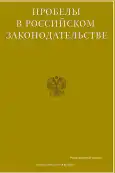Physical Training as a Means of Forming the Psychological Readiness of the Department of Internal Affairs Employees to Combat with the Offender
- Authors: Tkhazeplov R.L.1
-
Affiliations:
- North Caucasus Institute for Advanced Studies (branch) of the Krasnodar University of the Ministry of Internal Affairs of Russia
- Issue: Vol 15, No 5 (2022)
- Pages: 42-46
- Section: Articles
- URL: https://journal-vniispk.ru/2072-3164/article/view/147586
- ID: 147586
Cite item
Abstract
The purpose of this study is to study the role of physical training in countering the offender, as well as the psychological aspect of such training, its particular importance and indispensability. Psychological readiness refers to the readiness of an employee on a psychological level to engage in battle, to be defeated and endure the pain that an offender can inflict on him. It is not possible to develop such skills by physical activity and training alone. That is why in the training process of hand-to-hand combat, first of all, the correct technique for performing strikes and wrestling techniques is set, and after the employee acquires the correct technique, he is allowed to sparring. It has been established that independent physical training is of particular importance in the process of training police officers, which, although it implies the manifestation of their own initiative on the part of employees, the role of the teacher in this process is very large, since the basis of self-training is individual and group consultations. During the period when the initial motor skills begin to form among employees, the participation of a teacher (class leader) is necessary, since only he can prevent technical errors when performing exercises. In subsequent periods, when a stable skill of performing a motor act is formed, its improvement is allowed already within the framework of independent training without the participation of a teacher. It is concluded that the purpose of the training is to develop a lack of fear among police officers when engaging in combat with an unarmed or armed offender. It is the psychological training of employees that enhances the skills they have acquired to deal with the offender.
Full Text
##article.viewOnOriginalSite##About the authors
Rustam Leonidovich Tkhazeplov
North Caucasus Institute for Advanced Studies (branch) of the Krasnodar University of the Ministry of Internal Affairs of Russia
Email: islam-2604@mail.ru
police major, Lecturer of the Physical Training Department Nalchik, Russia
References
- Androsova V.V. Psychological training as one of the ways to form the psychological readiness of police officers to perform professional activities // In the collection: Organization of the educational process in a higher education institution: scientific and methodological aspects. Collection of articles presented at the III International Correspondence Scientific and Methodological Conference. Mogilev, 2020. pp. 12-15.
- Bassists D.G., Pichuzhkina V.S. Psychological training as a basis for the preparedness of police officers for the upcoming service activities // In the collection: Topical issues of improving tactical-special, fire and professional-applied physical training in the modern context of practical training for employees of internal affairs bodies. Materials of the international scientific-practical conference. Comp.: V.V. Gorbatov, S.A. Gorelov, O.V. Grigoriev. 2019. pp. 57-60.
- Gvozdkov P.Yu. Psychological and psychophysiological training of police officers for hand-to-hand combat with a criminal // In the collection: Actual issues of the development of hand-to-hand combat: problems, solutions, prospects. Digest of articles. Moscow, 2021, pp. 38-41.
- Dadov A.V. Formation of tactical and psychological readiness of police officers to the skills of using combat fighting techniques // Pedagogical journal. 2020. Vol. 10. No. -1. pp. 183-188.
- Debenova D.I., Debenov V.A. Professional and psychological training of police officers // In the collection: Social and psychological problems of modern education. Materials of the All-Russian scientific-practical conference. 2018. pp. 321-325.
- Kadutskaya L.A., Karaev V.A. Psychological training of police officers by means of physical training // In the collection: Actual problems of the development of physical culture and sports. Articles of the Interuniversity scientific-practical conference. Under the general editorship of S.S. Aganov. St. Petersburg, 2021, pp. 111-117.
- Kushchev P.M. Professional and psychological training of police officers in modern conditions: problems and trends // In the collection: Society and personality: humanistic trends in the development of modern society. Collection of scientific articles of teachers, university students, scientific and practical workers. 2017. pp. 212-217.
- Meshev I.Kh., Tkhazeplov R.L., Beshtoev R.O., Tkhagalegov A.A. Stages of training students of educational organizations of the Ministry of Internal Affairs of Russia in the initial skills and habits of using combat techniques of combat in physical training classes // In the collection: Physical culture and health of modern youth. Materials of the IV International Scientific and Practical Conference. Voronezh, 2021. pp. 97-103.
- Starkov M.A., Utyumov I.D. Psychological training as a factor in the formation of readiness of police officers for extreme situations of professional activity // In the collection: Physical culture and sport in the system of vocational education: experience and innovative technologies of physical education. Collection of materials of the All-Russian scientific-practical conference. Ed. K.A. Ryamova, A.V. Druzhinin. 2018. pp. 157-161.
- Tkhazeplov R.L., Yaroslavsky M.A. the use of physical force in the performance of official duties by police officers // Education. The science. Scientific personnel. 2021. No. 1. pp. 100-102.
Supplementary files








